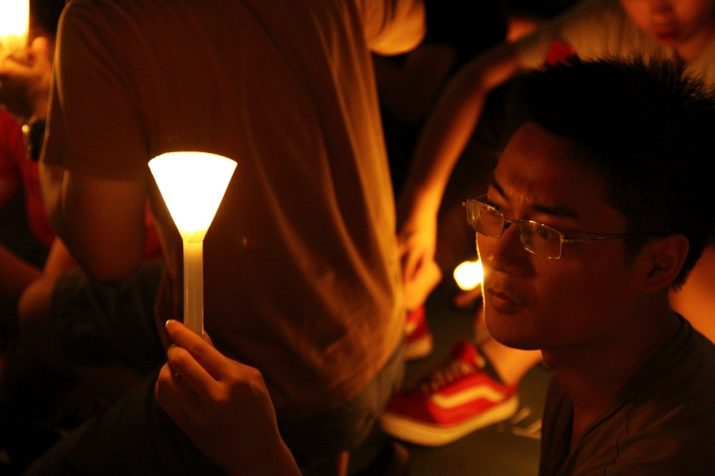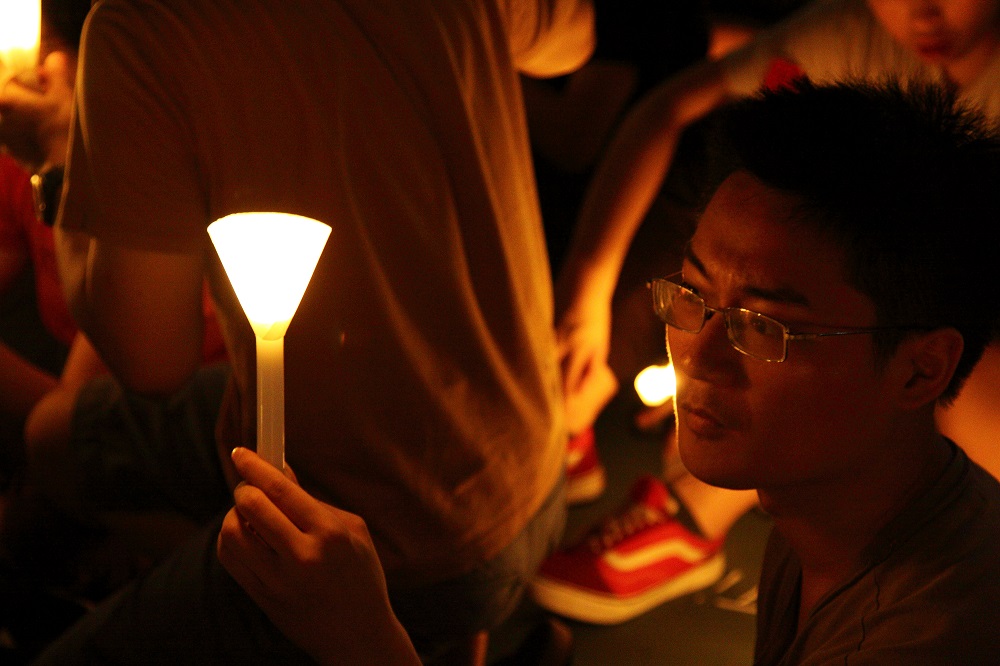

This is part of our special feature on Europe-China Relations.
Introduction
Against the backdrop of a wider “illiberal turn” in international relations, the rise of an increasingly authoritarian and assertive China seems to pose the principal strategic challenge to the liberal world order, especially at a critical juncture when the United States has abandoned its moral leadership of “the free world.”[1] In Europe, prominent politicians and think tanks have recently warned against China’s growing political and especially economic clout, which comes with strings attached – strings that can be used to silence critical voices.[2] Indeed, over the past couple of decades relations between Europe and China have been characterized by deepening economic engagement pursued individually by each European country, the adoption of bilateral strategic relationships with China and not least a growing unwillingness to address sensitive political issues like human rights. As a result, Europe now appears fundamentally fragmented and even acquiescent in its approach to the rise of an illiberal China.
This article takes stock of Europe’s human rights dialogue with China at a time when most observers, including the EU itself, agree that the human rights conditions in China are deteriorating as the Communist Party with Xi Jinping at the helm tightens its authoritarian grip on power.[3] Last year marked the first time the EU was unable to put forward any collective statement on Chinese human rights violations in the UN Human Rights Council (UNHRC), prompting Human Rights Watch, Amnesty International and others to publicly call for the EU to suspend its own institutionalized dialogue with China on human rights.[4] That the so-called “constructive dialogue on human rights” between the EU and China is utterly toothless – having no effect on the human rights situation in China and putting the impotence of the EU on full display – has long been argued by scholars and human rights activists alike.[5] Yet, rather than just pointing the finger at the EU, we should pay closer attention to the individual member states given the consensus requirements that apply to this issue area. Hence, we need to examine the broader development trends of how individual European countries approach China on the human rights issue, and how some countries have become ever more acquiescent to Beijing. With little systematic comparative analysis available, this article will take some initial steps to provide an overview of Europe’s dialogue with China on human rights since the 1990s and introduce the case of Denmark to illustrate the changing nature of this dialogue.
An overview of the dialogue and its development trends
Europe’s human rights dialogue with China can be traced back to the 1990s when the moral outcry in the West in response to the Tiananmen Square massacre in 1989 gradually gave way to renewed engagement with Beijing. To begin with, the EU countries stood together in publicly denouncing human rights violations in China and in co-sponsoring an annual China-critical resolution in the UN Commission on Human Rights (UNCHR, until 2006 the predecessor of today’s UNHRC). However, the first major breach of unity came in the mid-1990s, when several EU countries, led by France and Germany, decided no longer to co-sponsor the resolutions in the UNCHR, preferring to initiate a “EU-China Dialogue on Human Rights” rather than directly confront China in the commission.[6] Instead, the EU countries reached a new less critical consensus position in the UNCHR, agreeing to indirectly support US-tabled China-critical resolutions without co-sponsoring them again.[7] Meanwhile, the first round of EU-China dialogue on human rights took place in 1995, and, from 1997, the dialogue proceeded regularly with bi-annual meetings, a practice that was later changed to annual meetings and which, at the apparent request of the Chinese, now seems to have been reduced to meetings every second year.[8]
Apart from these multilateral settings, since the mid-1990s some European countries like Germany, Sweden, the UK and Norway have conducted formalized bilateral human rights dialogues with the Chinese, while other countries have addressed these issues on a more ad hoc-basis during bilateral meetings with their Chinese counterparts.[9] Furthermore, there are a wide range of unilateral statements by European ministers and other politicians usually issued in response to specific instances of human rights violations in China (e.g. a government crackdown on protestors in Tibet or Xinjiang) or the publication of a critical NGO report. Insofar as such unilateral statements are countered by Chinese government representatives (e.g. spokespersons at press briefings), the exchange of views can even be said to acquire some sort of dialogical format.
In order to investigate Europe’s human rights dialogue with China in a more systematic fashion, the observed practices can be categorized along three different dimensions, the first of which has already been introduced above:
- Format of the dialogue, ranging from unilateral over bilateral to multilateral statements.
- Style of the dialogue, ranging from public to non-public statements.
- Prominence of the dialogue, ranging from high to low compared to other issue areas.
Using these three dimensions to assess Europe’s human rights dialogue with China since the 1990s, several major development trends are observable. First, the format of the dialogue has long favored multilateral settings over unilateral or bilateral ones, reflecting an unwillingness among the European countries to face China individually on these sensitive issues. Second, the style of the dialogue has shifted from public towards non-public statements, as the direct, confrontational style practiced in the 1990s, sometimes referred to as “megaphone diplomacy,” has been substituted with “quiet diplomacy” characterized by behind-the-scene confidential exchanges. Finally, the prominence of the dialogue has decreased markedly over the years, as European governments have increasingly come to view the dialogue as a peripheral or even irrelevant concern (rather than an end in itself). Since it is beyond the scope of this article to pinpoint these development trends across Europe, the next section concentrates on the specific case of Denmark, which is largely reflective of the broader pattern outlined here.
Denmark’s “critical dialogue” with China on human rights
Human rights concerns had played no role in Denmark’s relationship with China prior to the 1989 Tiananmen Square massacre. Yet, as the incident came amid a broader reorientation of Danish foreign policy towards a new more activist and value-driven outlook, the Danish government rushed to condemn the Chinese leadership, being not only among the very first European countries to introduce sanctions against Beijing, but also the last country to normalize relations again in 1993.[10] Influenced by a highly China-critical public opinion, the Danish government was often a vocal critic of the human rights situation in China, using megaphone-style diplomacy to preach respect for human rights.[11] A litmus test for this “moral activism” came in 1997 when the Danish government, encouraged by its US counterpart, decided to sponsor the annual China-critical resolution in the UNCHR at the same time as leading European countries had started to backtrack on the human rights issue to engage China on other terms (see above). Beijing adroitly exploited the opening cracks in European unity to isolate and punish the Danish government for its activist stance, imposing political and economic sanctions on Copenhagen.[12]
As the Danish government strove to re-normalize bilateral relations with Beijing and embrace the new consensus position in the EU, it adopted a far more pragmatic China policy centered on economic and political engagement.[13] With respect to the human rights issue, this “pragmatic realism” was officially justified in terms of the socialization effect that a policy of engagement would allegedly have on the Chinese leadership, eventually causing it to introduce Western-style liberal rights. In the words of then-prime minister Anders Fogh Rasmussen “The aim has been to engage China internationally in order to influence it in a way that is informed by those norms and values that we want to promote.”[14] Whether or not the human rights situation was actually improving in China was a recurring question in the late 1990s and throughout the 2000s whenever Denmark’s official China policy was being debated in the parliament or in the media.
Over the past two decades, Denmark’s China policy of pragmatic engagement has been accompanied by significant changes to the way sensitive political issues like human rights are being addressed. While Danish government representatives insist that they still conduct what they call a “critical dialogue” with their Chinese counterparts, ahead of a trip to China in 2015 Kristian Jensen, then-minister of foreign affairs, observed that “I do not believe in megaphone diplomacy, where you end up shouting at each other. I’m sure that the Chinese side will be well aware of our position on human rights by the end of our meeting. But I’ll reserve this for the direct dialogue with my Chinese colleagues.”[15] What is left today of the bilateral dialogue on human rights, in other words, can best be described as “the quiet diplomacy” where non-public exchanges of well-known, pre-scripted views take place in confidential settings at the periphery of more important and substantive issue areas.[16] In fact, when the Danish government recently negotiated a new “Joint Work Programme 2017-20” with China – aimed at “upgrading the Comprehensive Strategic Partnership to a higher level” – human rights only figured once in the otherwise ambitious 46 page long document.[17] The only reference was to the Danish Institute for Human Rights which has been tasked by the Danish government to “strengthen knowledge sharing and cooperation on the rule of law” with its Chinese partners.[18] Finally, in addition to “outsourcing” parts of the human rights dialogue to a local NGO, Danish ministers and other government officials have increasingly referred to the EU as the proper setting to address such sensitive political issues, thereby confirming the overall European trend towards multilateralization of the human rights issue.
While the human rights issue has thus gradually receded into the background of Danish-Chinese relations, it recently recaptured the agenda in a way that shows how the issue has been turned on its head. In late 2017, a report from a special Danish investigatory commission documented that Danish police authorities, by confiscating banners and detaining civilians, deprived pro-Tibetan demonstrators of their constitutional right to freedom of expression as then-Chinese president Hu Jintao visited Copenhagen.[19] Even if the police campaign was (apparently[20]) not directly orchestrated from above, the commission did manage to conclude that high-ranking officials contributed to creating “an atmosphere” of urgency to forestall any face-losing incidents during Hu’s visit.[21] That Danish authorities resort to such measures of self-censorship suggests that Denmark has recently become more acquiescent in its relations with China.
The hardening of China’s stance, the softening of Europe’s
China seems poised to play a more prominent role on the international stage, as proposed by Xi Jinping at the 19th National Congress of China’s Communist Party in October 2017.[22] It means that China is likely not only to promote its own political values more directly than previously, but also to pursue its “core interests” in a more assertive manner. As Beijing has always regarded any kind of outside interference in its domestic political affairs as inimical to its core interests, the costs of taking the lead on sensitive political issues like Chinese human rights violations will only grow higher. Already back in 1997, Denmark was among the first to pay the price for speaking up (in the UNCHR), and in 2008 the Danish government, after hosting a meeting with the Dalai Lama, was forced to officially state that it “opposes Tibetan independence” in order to appease China and avoid sanctions.[23] Several other European countries have likewise been punished for interfering in China’s domestic affairs, a case in point being the six years long freeze of bilateral relations between China and Norway following the 2010 award of the Nobel Peace Prize to Chinese dissident Liu Xiaobo.[24]
Unwilling to face China publicly on their own, it will take a collective effort by the European countries to stand up to the rise of an illiberal China in a way that goes beyond the EU’s long-stalemated “constructive dialogue” with China on human rights. Yet, apart from the inability of the European countries to align their views in the UNHRC last year, another recent (if less publicized) example does not bode well for the prospects of seeing any joint European position. In late February 2017, only seven of the 28 EU countries signed on to a letter expressing “growing concern over recent claims of torture and other cruel, inhuman or degrading treatment” in China, even if the message was submitted quietly to the Chinese authorities to avoid media publicity.[25] Interestingly, this “coalition of the willing” included major countries like Germany, France and the UK as well as Sweden, Belgium, Czech Republic and Estonia, whereas Hungary reportedly took the lead in preventing the letter from being adopted by the EU as a whole. Other recent attempts by the EU countries to collectively address Chinese human rights violations or its assertiveness in the South China Sea have likewise been blocked by Hungary and also Greece.[26]
Europe’s softening stance on human rights comes against the backdrop of an increasingly fragmented Europe, which currently seems to contain three main blocks: 1) “the reluctant standard bearers” (like Sweden) that feel morally obliged to address Chinese human rights abuses; 2) “the reticent pragmatists” (like Denmark) that prefer to keep a low profile and accommodate the rise of China; and “the willful obstructionists” (like Hungary) that actively seek to shield China from criticism. As long as China is able to increase its economic and political clout in Europe, these three blocks are unlikely to find common ground in dealing with Chinese human rights abuses. Indeed, with some Central European countries like Hungary and Poland having adopted a number of illiberal political measures of their own, the “normative power” of Europe has already come under increased pressure from within. Soon enough, an emboldened Chinese leadership may feel tempted to publicly lecture their European counterparts about human rights as seen from a Chinese perspective, that is, as socio-economic rather than liberal rights.
Andreas Bøje Forsby is a researcher, PhD, affiliated with the Nordic Institute of Asian Studies and an external lecturer in IR at Department of Political Science, University of Copenhagen. While his PhD investigated how China’s self-understanding as a rising power shapes its grand strategy in the 21st century, his current research covers the rise of an illiberal China as well as Asian security dynamics more broadly, including the emerging US-China great power rivalry.
Photo: HONG KONG – JUN 4, It is the commemoration of the 22nd anniversary of the Tiananmen massacre at 4 June, 2011 in Victoria Park, Hong Kong. Everyone has a candle provided by Hong Kong Alliance | Shutterstock
References:
[1] Forsby, Andreas B (2017a), “Trump, Xi and the Eclipse of the Liberal World Order”, DIIS Comment, https://www.diis.dk/publikationer/trump-xi-and-the-eclipse-of-the-liberal-world-order.
[2] Gabriel, Sigmar (2018), speech by German minister of foreign affairs at Munich Security Conference, February 17, 2018: https://www.auswaertiges-amt.de/de/newsroom/rede-muenchner-sicherheitskonferenz/1599848; Benner, Torsten et al. (2018: 7), “Authoritarian advance: Responding to China’s growing political influence in Europe”, report by Global Public Policy Institute and Merics, Berlin: http://www.gppi.net/publications/rising-powers/article/authoritarian-advance-responding-to-chinas-growing-political-influence-in-europe/; Godement, Francois and Abigaël Vasselier (2017: 76-77), “China at the gates: A new power audit of EU-China relations, European Council on Foreign Relations, London: http://www.ecfr.eu/publications/summary/china_eu_power_audit7242.
[3] EU External Action, press release on June 23, 2017: https://eeas.europa.eu/headquarters/headquarters-homepage/28768/human-rights-dialogue-between-european-union-and-china_en; see also e.g. Human Rights Watch: https://www.hrw.org/asia/china-and-tibet.
[4] Human Rights Watch (2017) “EU: Suspend China Human Rights Dialogue”, June 19, 2017: https://www.hrw.org/news/2017/06/19/eu-suspend-china-human-rights-dialogue.
[5] Baker, Philip (2002: 47), “Human rights, Europe and the People’s Republic of China.” The China Quarterly 169: 45-63; Kinzelbach, Katrin (2015: 3), The EU’s Human Rights Dialogue with China: Quiet Diplomacy and Its Limits, London: Routledge; McMillan-Scott, Edward and Chen Guangcheng (2013), “The EU must promote human rights worldwide – that includes China”, The Guardian, May 16, 2013: https://www.theguardian.com/commentisfree/2013/may/16/eu-us-promote-human-rights-china.
[6] Baker (2002: 55-56) “Human rights, Europe and…”; Balducci, Giuseppe (2010: 42), “The limits of normative power Europe in Asia: the case of human rights in China.” East Asia 27(1): 35-55;
[7] Baker (2002: 57), “Human rights, Europe and…”; Balducci (2010: 43), “The limits of normative power…”
[8] Kinzelbach (2013) The EU’s Human Rights Dialogue…; Preda, Christian Dan et al. (2017), “The EU urgently needs to review its Human Rights Dialogue with China”, various members of European Parliament, Euractiv, May 29, 2017: https://www.euractiv.com/section/china/opinion/the-eu-urgently-needs-to-review-its-human-rights-dialogue-with-china/; the 2016 session of the “constructive dialogue” was cancelled.
[9] Balducci (2010: 50-51) “The limits of normative power…”; Kinzelbach, Katrin, and Hatla Thelle (2011: 62), “Taking human rights to china: An assessment of the eu’s approach”, The China Quarterly 205: 60-7.
[10] Østergaard, Clemens S (2011) “Danish-Chinese Relations: Continuity and Change 1949-2011” Danish Foreign Policy Yearbook 2011, Danish Institute for International Studies, pp. 48-77.
[11] Østergaard (2011: 59).
[12] Michalski, Anna (2013: 892), “Europeanization of National Foreign Policy: The Case of Denmark’s and Sweden’s Relations with China”, Journal of Common Market Studies 51(5): 884-900;
[13] Michalski (2013: 892-3), “Europeanization of National Foreign Policy…”
[14] Rasmussen, Anders Fogh (2004; author’s own translation), debate in the Danish parliament on March 31, 2004: http://webarkiv.ft.dk/?/Samling/20031/salen/F47_BEH1_73_6_2.htm.
[15] Cited in Lauridsen, JB (2015; author’s own translation), “Kristian Jensen: `Jeg tror ikke på megafon-diplomati´”, BT, October 25: http://www.bt.dk/politik/kristian-jensen-jeg-tror-ikke-paa-megafon-diplomati.
[16] Based on interviews with anonymous sources in the Danish Ministry of Foreign Affairs; see also Forsby, Andreas B (2017: 39), “Denmark’s relationship with China: An odd couple’s quest for bilateral harmony”, in Sverdrup-Thygeson et al. (ed.), China and Nordic Diplomacy, London: Routledge.
[17] “China-Denmark Joint Work Programme 2017-20” (2017), homepage of the Danish Ministry of Foreign Affairs, accessed April 20, 2018: http://kina.um.dk/en/about-denmark/sino-dk-relations/
[18] Ibid. (p. 28).
[19] Bagger, Tuk et al. (2017: 20), Tibetkommissionens beretning”, December 18, 2017: http://www.justitsministeriet.dk/sites/default/files/media/Pressemeddelelser/pdf/2017/tibet_kommission_bind2.pdf.
[20] Central sources of evidence were unfortunately erased prior to the investigation, see Tynell, Jesper (2018), “Politichefers mails blev slettet”, DR Nyheder, March 12, 2018: https://www.dr.dk/nyheder/politik/politichefers-mails-blev-slettet-forud-tibet-kommissionens-undersoegelse).
[21] Bagger, Tuk et al. (2017: 19) “Tibetkommissionens beretning”.
[22] Glaser, Bonnie and Matthew Funaiole (2017), “Xi Jinping’s 19th Party Congress Speech Heralds Greater Assertiveness in Chinese Foreign Policy, Center for Strategic and International Studies: https://www.csis.org/analysis/xi-jinpings-19th-party-congress-speech-heralds-greater-assertiveness-chinese-foreign-policy.
[23] Forsby (2017: 38), “Denmark’s relationship with China…”
[24] Chan, Sewell (2016), New York Times, December 19, 2016: https://www.nytimes.com/2016/12/19/world/europe/china-norway-nobel-liu-xiaobo.html
[25] Vanderklippe, Nathan (2017), The Globe and Mail, March 20, 2017: https://www.theglobeandmail.com/news/world/canada-10-other-countries-call-out-china-for-torturing-human-rights-lawyers/article34346186/
[26] Benner et al. (2018: 16), “Authoritarian advance…”
Published on June 5, 2018.




